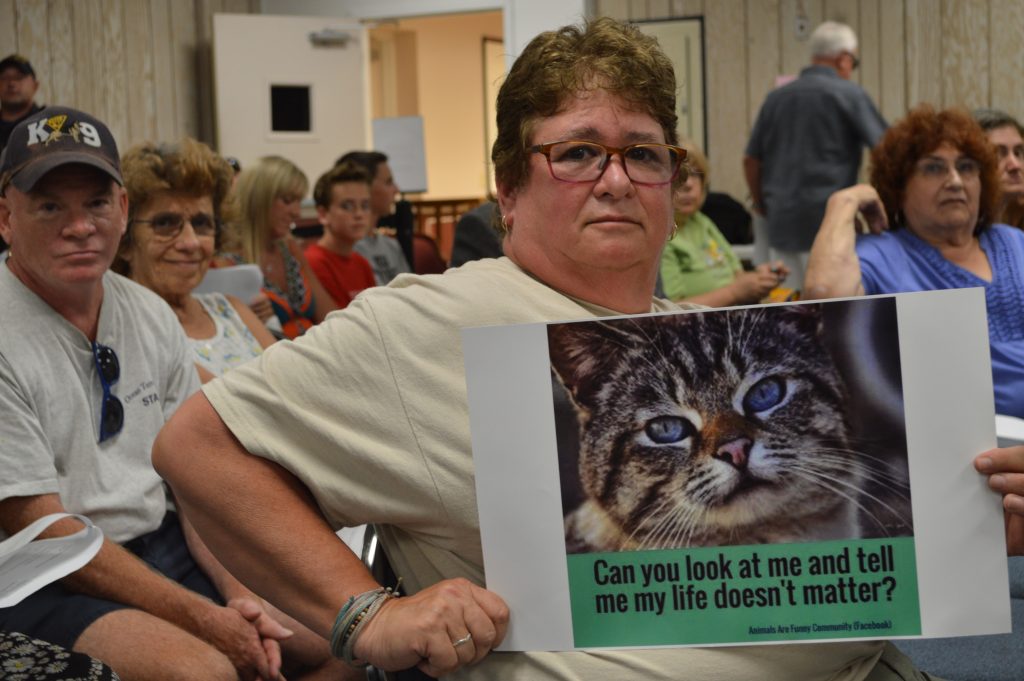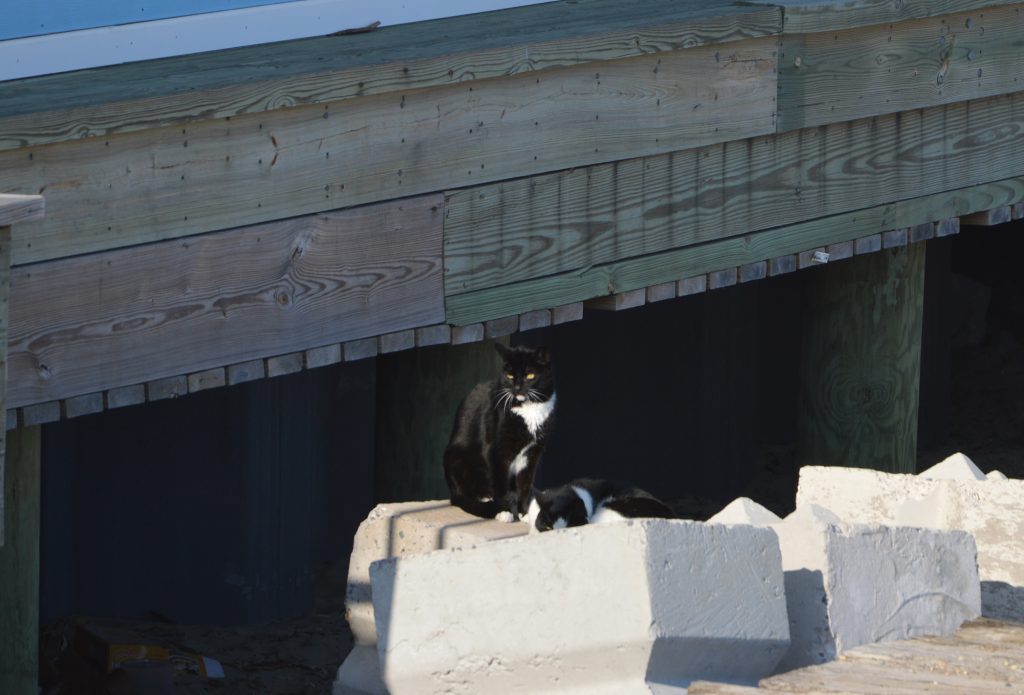Feral cat advocates and Seaside Heights residents squared off in an hourlong debate Wednesday on how to best manage the borough’s nagging feral cat issue, culminating in two votes that will result in a slightly modified version of an ordinance that dictates new rules and regulations on how to manage the felines.
The council unanimously adopted an ordinance that was proposed earlier this month, but followed it up with an amendment that would allow existing “colonies” of feral cats to continue without the permission of those whose homes neighbor the colonies. Otherwise, the proposed ordinance was adopted intact, to the chagrin of members of various feral cat welfare groups that came to voice their opinions before the borough council.
“If you take these cats to a shelter, they’ll be there for a week and then they will be destroyed,” said Forked River resident Barry Bendar. “It’s basically a death sentence for these cats.”
Another woman held back tears, saying her son might not be able to see “Big Red,” a large orange cat that frequents the boardwalk area.
The ordinance keeps in place a Trap, Neuter, Release program which traps cats, spays or neuters them, then returns them to colonies managed by volunteers. But the ordinance puts strict regulations on the program, mandating registration and prohibiting new colonies from being created in residential zones without the permission of neighbors.
The new program will also promote adoption and building relationships with cat sanctuaries both in and out of state where the cats could be relocated, but also states that sometimes feral cats may have to be “humanely euthanized.” The borough’s animal control officer will replace the Seaside Heights Animal Welfare Organization as the manager of the TNR program, which would continue in a different fashion under the plan. The animal control officer would report to the borough administrator, and an “animal coordinator” would report to the animal control officers. The coordinator could be an individual or a group, said Borough Administrator Christopher Vaz.
The ordinance preserves the TNR program but bans cat colonies from the boardwalk area, beach area and along the Boulevard business district. Feral cat colonies, under the new ordinance, will have to be registered with the borough and approved by the property owner where the colony would be maintained, as well as neighbors. The number of cats in each colony would be limited to 10 unless the animal control officer allows a larger number.
Residents, as they have for several meetings this summer, lauded the council for passing the ordinance.
“I realize these are tough times and everyone has a flag to rally around, but I expect this council to have the strength and the foresight to stop this nonsense,” said Pete Carlino, a Sampson Avenue resident. “Let’s make this a beach community, not a community where we tiptoe through the cat crap to go to the beach.”
Sampson Avenue residents have been particular concerned with the feral cat population due to a colony which, apparently, has grown on the block, leading to cats defecating and urinating on neighboring properties, damaged property and incursions into crawl spaces.
Some of the feral cat advocates pledged to help the borough deal with the problem through a better-managed TNR program, but stood staunchly against the ordinance. They claimed the requirement to register as a TNR member would prevent people from volunteering.
Mayor Anthony Vaz, after the meeting, said Alley Cat Allies, a group that favors TNR programs, convinced officials to pass the amendment which grandfathers in the colonies that already exist; they will not be subject to the approval of neighbors.
“We’re going to monitor them,” said Vaz, adding that he would take up an offer from a woman who commented, offering training to colony managers.
Residents, responding to claims by cat advocates that Seaside Heights would lose business due to some who would protest, were unmoved.
“People are going to come to Seaside whether we have cats or we don’t have cats,” said Patti Koch, a Carteret Avenue resident. “Live and let live is fine up until the point where it does not work anymore – and it is not working. We want the cat problem resolved.”

Advertisement

Ortley Beach & North Beaches
Landmark Ortley Beach Breakfast Spot Looks to Expand

Ortley Beach & North Beaches
‘Temporary’ 70-Foot Cell Tower on Route 35 in Ocean Beach OK’d to Return

Seaside Heights & Seaside Park
Beloved South Seaside Park Restaurant Will Remain Open As Developer Seeks to Demolish Block

Seaside Heights & Seaside Park
In Seaside Heights, A $50M Flagship Building Rises Over the Boulevard in a Famed Location

Police, Fire & Courts
Ocean County Sheriff Establishes Drone Command Center in Seaside Heights Amid New Video







